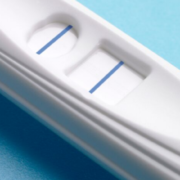Is BioTE right for you? Studies have shown that optimized hormones can reduce the risk of some age-related health issues, such as osteoporosis, Alzheimer’s disease, and diabetes. Additionally, if you or someone you know is experiencing any of these symptoms, chances are they are a candidate for hormone replacement pellet therapy.
- Lack of energy and fatigue during the day
- Difficulty sleeping at night
- Reduced mental focus and memory
- Moody, anxious, or depressed
- Weight gain including increased fat around mid-section
- Inability to lose weight regardless of healthy diet and exercise
- Decreased muscle strength
- Muscle and/or joint pain
- Reduced sexual desire and performance
What is BioTE Hormone Treatment?
BioTE bioidentical hormone pellets contain the same chemical structure as your body’s natural hormones because they are made without fillers or synthetic ingredients, they completely dissolve. While proper hormone levels are determined by the BioTE comprehensive bloodwork analysis. Unique dosing is recommended for each patient for the best possible outcome. Hormone pellets are placed in the office under the skin using localized Lidocaine for anesthesia. Pellets introduce hormones into the bloodstream consistently 24 hours a day. Some patients begin to experience symptom relief 72-96 hours after insertion with optimization occurring 3 weeks after insertion.
After BioTE pellet insertion patients tell us they experience:
- Increased energy and muscle strength
- Greater ability to lose weight
- Increased mental clarity
- Increased quality of life
- Feel younger and happier
Ready to Learn More About BioTE Hormones in Columbus, Georgia?
So to learn more about BioTE hormone pellet therapy and how it can benefit you or your spouse, contact us today.
OBGYN Specialists of Columbus, GA is the leading BioTE provider in Columbus, Georgia and surrounding areas, including Phenix City, Alabama. We are happy to discuss your BioTE options, as well as answering any questions you might have.
Learn more about your options with BioTE and how you can get started today.











